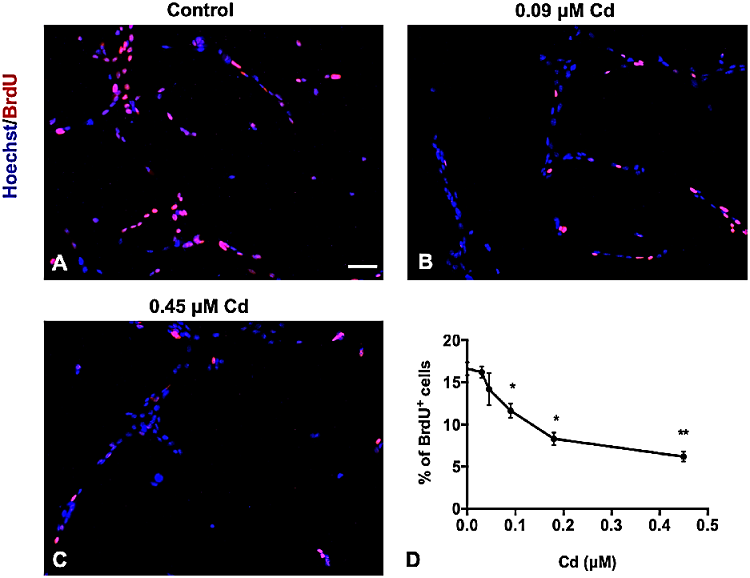Superfund Research Program
Cadmium Exposure Impairs Production of Neurons Responsible for Learning and Memory
View Research Brief as PDF(384KB)
Release Date: 01/08/2020
![]() subscribe/listen via iTunes, download(4.6MB), Transcript(84KB)
subscribe/listen via iTunes, download(4.6MB), Transcript(84KB)
A new study funded by the Superfund Research Program (SRP) shows cadmium exposure can impair new neurons from forming and maturing in the hippocampus region of the brain. Led by Zhengui Xia, Ph.D., the researchers at the University of Washington (UW) SRP Center also found that cadmium can lead to the death of stem cells that produce these neurons. In people, learning and memory formation depends on the production of new neurons in this region of the brain.
Because alterations to adult hippocampal neuron development has been reported to be associated with cognitive behavior deficits, cognitive decline, and Alzheimer's disease, these findings may have implications for the role of environmentally relevant cadmium exposure in neurodegenerative diseases.
Previous research linked cadmium exposure to impaired learning and memory formation in behavioral studies in adult mice, but the mechanism by which cadmium created this effect remained unclear. In the new study, a combination of stem cells and mice were used to identify whether neuron formation in the hippocampus was affected, leading to learning and memory impairment.

Identifying Changes in Cells
The researchers applied cadmium directly to the cells and found that it reduced the total number of cells, led to cell death, and interfered with the production and maturation of new neurons derived from the stem cells. These effects were seen at concentrations as low as 10 parts per billion.
They also discovered cadmium exposure increases the activation of Jun NH2-terminal kinase (JNK) and p38 kinase, two proteins that play a role in key stages of neuron development in adults. By inhibiting these pathways, they observed reduced stem cell death with exposure to cadmium, suggesting that these proteins are involved in cadmium-induced cell toxicity.
Assessing Alterations in Mice
The team also exposed adult male mice to low levels of cadmium in their drinking water for 13 weeks. The treated mice had blood levels of cadmium that resemble those found in human cigarette smokers. The blood levels in treated mice were also lower than the Occupational Safety and Health Administration (OSHA) standard for cadmium that triggers medical surveillance. They found that this level of cadmium exposure decreased the number of new neurons in the hippocampus and impaired their maturation compared to mice that were not exposed. Cadmium also appeared to significantly decrease the complexity of dendrites, the segments of the neuron that receive stimulation for the cell to become active, in a region of the hippocampus.
According to the authors, because learning and memory formation depends on production of new neurons in the hippocampus, these results provide the first strong evidence of a mechanism by which cadmium impairs cognitive functioning in adults.
For More Information Contact:
Zhengui Xia
University of Washington
Department of Environmental and Occupational Health Sciences
Health Sciences Building, F-561C
Seattle, Washington 98195
Phone: 206-616-9433
Email: zxia@uw.edu
To learn more about this research, please refer to the following sources:
- Wang H, Abel GM, Storm D, Xia Z. 2019. Cadmium exposure impairs adult hippocampal neurogenesis. Toxicol Sci 171:501-514. doi:10.1093/toxsci/kfz152 PMID:31271426
To receive monthly mailings of the Research Briefs, send your email address to srpinfo@niehs.nih.gov.


